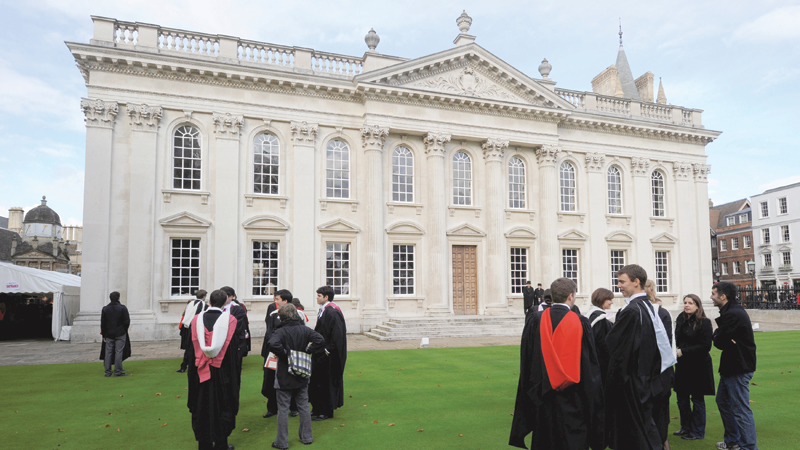

London: One of Britain’s top universities on Tuesday announced a two-year inquiry into its links to the African slave trade, promising to “uncover how the institution may have gained from slavery and the exploitation of labour.”
Scholars at the University of Cambridge will examine archives and other records to determine how it might have benefited from slavery “through financial and other bequests to departments, libraries and museums.”
They will also investigate how scholarship at the university “might have reinforced and validated race-based thinking between the 18th and early 20th century” when Britain was a colonial power involved in slave-trading, mainly from western Africa to the Caribbean and the Americas.
An advisory group will recommend “appropriate ways to publicly acknowledge past links to slavery and to address its impact,” the university said.
“There is growing public and academic interest in the links between the older British universities and the slave trade, and it is only right that Cambridge should look into its own exposure to the profits of coerced labour during the colonial period,” said Professor Stephen Toope, the university’s vice chancellor.
Martin Millett, a professor of classical archaeology, who heads the advisory group, said the benefits to the university “may have been financial or through other gifts.”
“But the panel is just as interested in the way scholars at the university helped shape public and political opinion, supporting,reinforcing and sometimes contesting racial attitudes which are repugnant in the 21st century,” Millett said.
Opposition Labour lawmaker David Lammy, one of Britain’s mostprominent black politicians, praised the university’s decision
to “examine its colonial past and slavery.”
But Gill Evans, a professor of medieval theology and intellectual history at the university, told the Daily Telegraph that launching the inquiry risks “messing with history.”
Evans told the newspaper that Britain’s current “climate of anti-colonialism” means that examining links with colonialism is “one of the things every university now feels they have to do.”
Britain shipped some 3.1 million Africans across the Atlantic from the late 17th century to the early 19th century, according to a British government history, although other estimates of the number of slaves are much higher.
Traders from Spain, the Netherlands, Portugal, France, Sweden, Denmark and Norway also sold African slaves.
Students at the University of Oxford launched a “Rhodes Must Fall” campaign in 2015 to demand the removal of a statue of Cecil Rhodes, a British businessman and colonialist in southern Africa, from one of its colleges. — dpa
Oman Observer is now on the WhatsApp channel. Click here



